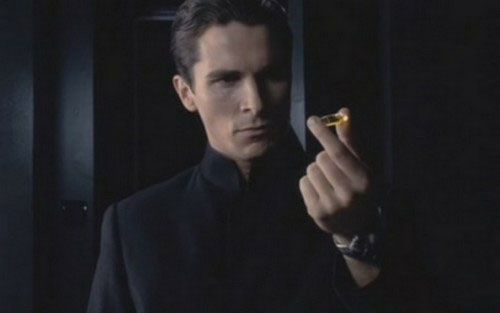
As much as I like to judge the ultimate merits of a character by their relationships, we also learn a great deal about a character from the way they deal with, or ignore, their emotions. We may put up a brave front in the face of friends, competitors, or even close relatives and spouses, but in the end, we are who we are in the dark. Our characters are no different.
Conflict gives weight, drive, and meaning to any drama unfolding before us, and that conflict need not be with another character. An individual can be conflicted over their emotions, especially if they interfere with or threaten to override one’s duty. If you’ve ever seen the television show Chuck, you know what I’m talking about. The main character shows a great range of emotions, one of his handlers struggles to keep her feelings to herself, and the other handler seems all but emotionless outside of a general level of seething rage. It’s part of that show’s appeal.
Equilibrium isn’t the best movie I’ve ever seen, but it does touch on some very real aspects of the human condition and how we process, explore, and control our emotions. Like many fascist notions, the idea of suppressing or eliminating emotion has some merit, as it would definitely cut down on things like war, fanaticism, murder, and rape. However, doing so at the cost of artistic impulse, love, compassion, and camaraderie is too high. The human mind can look to defend itself, but the heart longs to feel, even if the brain tells it that being harmed is inevitable.
It can be difficult to relate to characters if they show no emotion. I think this is more a problem in video games than anywhere else. Previously, technology limited how much a character could emote, but modern techniques continue to bring us more life-like expressions, exchanges of dialog, and moments of introspection in the midst of all the action. Granted, this happens more in RPGs than it does in first-person shooters, but there’s no reason we can’t have our emotional cake and eat it, too. One of the big problems I had with later Halo games is that it was very hard for me to relate to Master Chief; the guy seems to run more on batteries than he does a human circulatory system. Heroes without emotions are just straight-up boring.
It’s entirely possible to go too far in the other direction, though. For years, Samus Aran showed little to no emotion in the Metroid games, and then Metroid Other M comes along to give Samus a voice and show us how it might feel to have an alien serial killer resembling a pterodactyl harass, assault, and victimize you at every turn. Reactions to this insight into her character were mixed, to say the least, and I can say very little about it as I have yet to play the game myself. But suffice it to say that, for many, it was simply too much.
What characters strike the right emotional balance for you? What’s a great example of showing an audience what and how characters feel?

